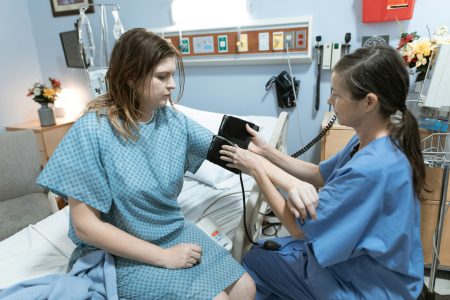Insomnia, the inability to fall or stay asleep, affects millions of individuals worldwide, disrupting daily life and overall well-being. While medication is often a go-to solution, there are numerous natural and holistic insomnia treatment options that promote restful sleep without relying on pharmaceuticals. Let’s explore effective methods to combat insomnia and reclaim your nights.
Understanding Insomnia: What Triggers Sleepless Nights?
Before diving into treatments, it’s essential to understand what causes insomnia. Common triggers include stress, anxiety, irregular sleep schedules, poor sleep hygiene, and underlying medical conditions. Identifying and addressing these root causes is crucial for long-term relief.
1. Cognitive Behavioral Therapy for Insomnia (CBT-I)
One of the most effective non-medication approaches to insomnia treatment is Cognitive Behavioral Therapy for Insomnia (CBT-I). This therapy helps individuals identify and change negative thoughts and behaviors that interfere with sleep. Techniques include:
- Sleep Restriction Therapy: Limiting time in bed to match actual sleep duration and gradually increasing it.
- Stimulus Control: Associating the bed with sleep rather than activities like work or watching TV.
- Relaxation Training: Learning deep breathing and muscle relaxation techniques to ease anxiety.
CBT-I has been shown to provide lasting improvements in sleep patterns and quality.
2. Adopting Healthy Sleep Hygiene
Improving sleep hygiene is a foundational aspect of insomnia treatment. Simple yet effective changes in daily habits can make a significant difference:
- Set a Consistent Sleep Schedule: Go to bed and wake up at the same time every day, even on weekends.
- Create a Relaxing Bedtime Routine: Engage in calming activities like reading, taking a warm bath, or practicing mindfulness meditation before bed.
- Optimize Your Sleep Environment: Ensure your bedroom is dark, quiet, and cool. Invest in a comfortable mattress and blackout curtains.
- Limit Screen Time: Reduce exposure to blue light from phones, tablets, and TVs at least an hour before bedtime.
3. Nutrition and Lifestyle Adjustments
Your diet and lifestyle choices play a significant role in regulating sleep. Here are some key tips:
- Avoid Caffeine and Alcohol: Limit consumption, especially in the afternoon and evening, as these substances can interfere with sleep cycles.
- Incorporate Sleep-Inducing Foods: Snack on foods like bananas, almonds, cherries, and oatmeal, which are rich in sleep-promoting nutrients like magnesium and melatonin.
- Exercise Regularly: Engage in moderate physical activity during the day to promote better sleep, but avoid vigorous workouts close to bedtime.
4. The Power of Relaxation Techniques
Relaxation methods are invaluable tools in insomnia treatment. These practices help calm the mind and prepare the body for sleep:
- Meditation: Practicing mindfulness meditation can reduce stress and improve sleep quality.
- Progressive Muscle Relaxation: Gradually tensing and relaxing each muscle group can ease physical tension.
- Breathing Exercises: Deep breathing exercises, such as the 4-7-8 technique, can slow your heart rate and promote relaxation.
5. Natural Remedies and Supplements
Several natural remedies have been used for centuries to aid sleep:
- Herbal Teas: Chamomile, lavender, and valerian root teas are known for their calming properties.
- Melatonin Supplements: This hormone helps regulate the sleep-wake cycle and can be beneficial for short-term use.
- Essential Oils: Aromatherapy with lavender or cedarwood essential oils can create a soothing atmosphere for sleep.
While these remedies are generally safe, it’s essential to consult a healthcare professional before starting any new supplement.
6. When to Seek Professional Help
If natural methods and lifestyle changes don’t alleviate your insomnia, it may be time to consult a doctor. Chronic insomnia can sometimes indicate an underlying medical condition, such as sleep apnea, restless legs syndrome, or depression. A sleep specialist can provide a comprehensive evaluation and recommend appropriate treatments tailored to your needs.
Conclusion
Restful nights are achievable without medication by focusing on holistic insomnia treatment methods. By adopting healthy sleep habits, practicing relaxation techniques, and addressing the root causes of sleeplessness, you can enjoy better sleep and improved overall health. Start with small changes today, and experience the transformative power of a good night’s rest.



